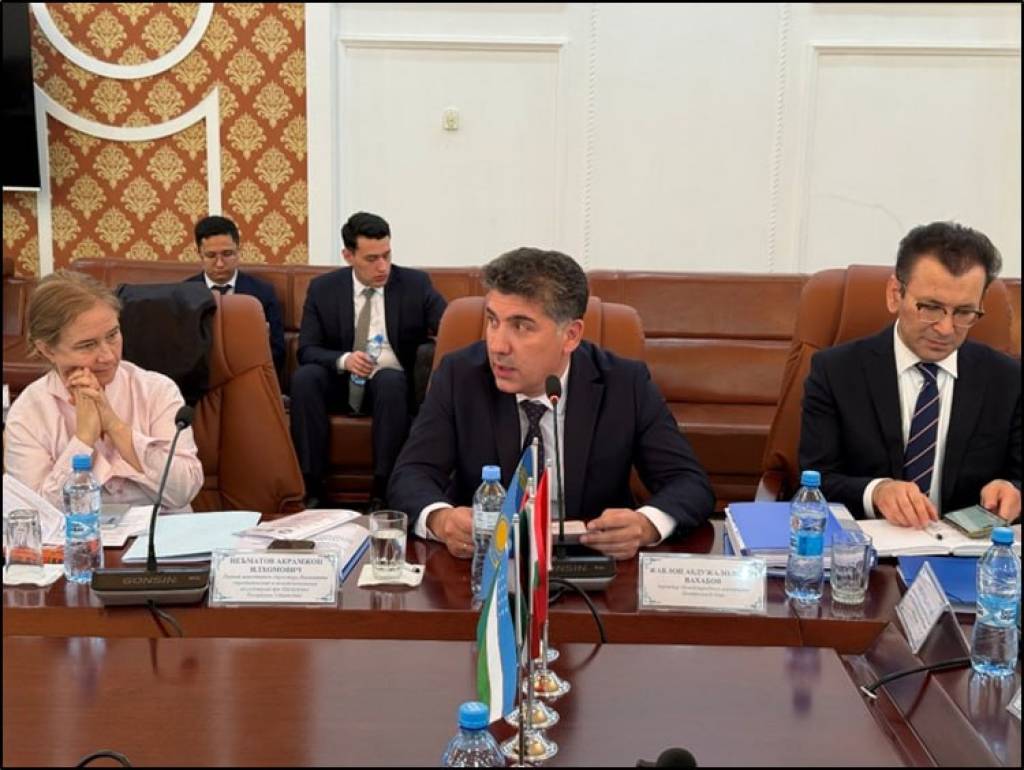
This assessment was shared by Akramjon Nematov, First Deputy Director of the Institute for Strategic and Regional Studies (ISRS) under the President of the Republic of Uzbekistan, during the regional conference on “Integration of Central Asian countries amid contemporary global changes: current state and prospects”, held on May 1 in Dushanbe.
According to the expert, through joint efforts, the region’s countries have shaped a qualitatively new political atmosphere, imparting steady momentum to multilateral cooperation processes and reinforcing Central Asia’s agency on the international stage.
As Mr. Nematov noted, mutually beneficial compromises are now being reached on all bilateral and regional issues, and Central Asian countries are taking unified or closely aligned positions on matters of the international agenda. The region’s political, economic, and cultural-civilizational potential is being increasingly revealed, and Central Asia is steadily transforming into a space of stability and shared prosperity.
In this context, the ISRS representative emphasized that this progress is also evident in the accelerated growth of accumulated foreign investment in Central Asia, which has nearly tripled in recent years. According to him, the region’s industrial output is growing at a rate of 6%, and exports to international markets have doubled. Overall, as the expert pointed out, Central Asia’s economic growth has outpaced global averages by a factor of two in recent years, consistently demonstrating growth around 6%.
As a result, the strategic importance of Central Asia has grown significantly, and interest in the region continues to increase. While this brings new opportunities, it also presents certain challenges.
Under these circumstances, A. Nematov stressed the need for the region’s countries to jointly develop effective and resilient models for responding to potential threats. This, he noted, is a key condition for maintaining the strong momentum of sustainable development across Central Asian states.
In this context, the expert highlighted the importance of adopting the Concept for Regional Security and Stability in Central Asia, an initiative put forward by the President of the Republic of Uzbekistan during the Sixth Consultative Meeting of the Heads of State of Central Asia held on August 9, 2024, in Astana.
The key provisions of the draft document, developed as a joint product of the expert community of Central Asian countries, were presented to the conference participants. According to Mr. Nematov, adopting the Concept will help establish a shared understanding of challenges and threats, strengthen interstate cooperation, and foster joint efforts to develop comprehensive approaches to addressing critical regional security issues.
At the same time, ISRS’s representative emphasized that collective efforts to ensure security in Central Asia must be accompanied by purposeful work toward building a long-term framework for cooperation. This framework should be based on a clear vision of a unified regional development strategy and mutual commitments to achieving common goals, guided by the principle of shared benefit.
In this regard, the expert emphasized the relevance of adopting the Treaty on Strategic Partnership and Comprehensive Cooperation among the Central Asian states, an initiative put forward by Uzbekistan.
“Today, it is crucial to work together, act based on a shared vision and a unified approach to challenges and opportunities, align our national development strategies, and strengthen mutual support in achieving common goals”, the expert asserted.
Mr. Nematov expressed confidence that the Treaty would establish a solid legal foundation for the steady expansion of cooperation in all key areas essential for Central Asia’s sustainable development. These include trade, transportation, environmental well-being, water and food security, energy, and human capital development.
The regional conference was organized by the Center for Strategic Studies under the President of the Republic of Tajikistan in cooperation with the Konrad Adenauer Foundation.
The event brought together leaders and experts from the leading analytical and research institutions of the Central Asian states.
UzA








